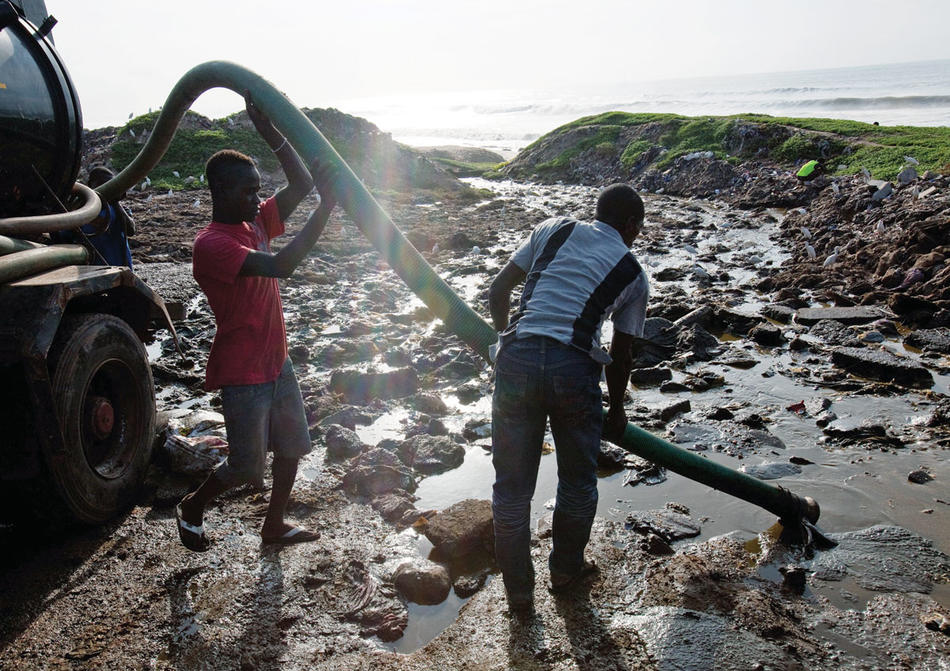In Ghana’s capital of Accra, most of the sewage generated by the city’s nearly 4 million people goes untreated. The consequences are predictable: Flies spread cholera and other diseases, water used by many of the city’s poorest residents is contaminated, and local seafood is unsafe to eat. Yet incredibly, water-treatment facilities built by aid organizations don’t operate at full capacity.
“The problem is at least partly economic,” says Kartik Chandran, a Columbia associate professor of earth and environmental engineering. “Water-treatment plants cost a lot of money to run.”
Can the process of treating wastewater be made more economical? Chandran thinks it can be, if sewage is converted into fuel. In his laboratory, he has developed an unusually efficient way to turn nitrogen and other organic compounds from human waste into biodiesel. This spring he received a $1.5 million grant from the Bill and Melinda Gates Foundation to build a new water-treatment plant in Accra to test his technology. Chandran is collaborating on the project with Moses Mensah, a chemical engineer at Ghana’s Kwame Nkrumah University, and Ashley Murray, who runs a Ghana-based nonprofit organization that promotes private sanitation projects.
The grant will pay for the construction of a small biorefinery and its operation for two years. The facility, roughly the size of a gas station, is scheduled to open this fall. It will treat the wastewater produced by about 3000 people per day. The sludge will be delivered by tanker trucks that drive around Accra collecting public latrines used by most of the city’s residents.
“We expect to generate about 260 gallons of biodiesel daily,” says Chandran, whose collaborators have arranged to sell the fuel to a local oil company. “That’s not quite enough to break even financially, but we should steadily increase our output as we fine-tune our technical design.”
The refinery will be staffed by two full-time engineers and an administrator, as well as by several engineering graduate students from Kwame Nkrumah University.
The long-term goal of the project, Chandran says, is to inspire local entrepreneurs and investors to launch their own refineries. In many developing nations, he points out, privately owned water-treatment projects are now regarded as a promising strategy for delivering sanitation.
“The model that we’re going to demonstrate could be beneficial anywhere in the world,” he says. “But in a country where sanitation projects are said to be unaffordable and impractical, it could literally save lives.”



